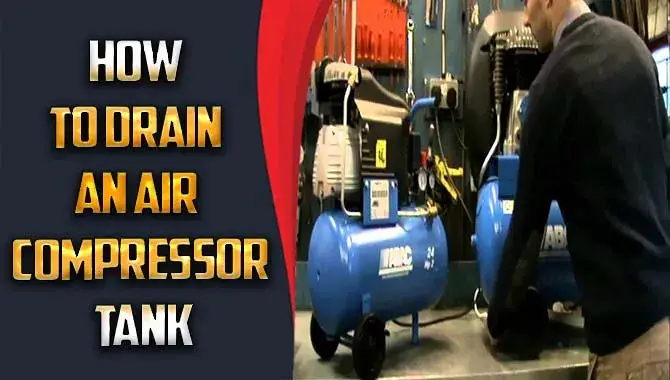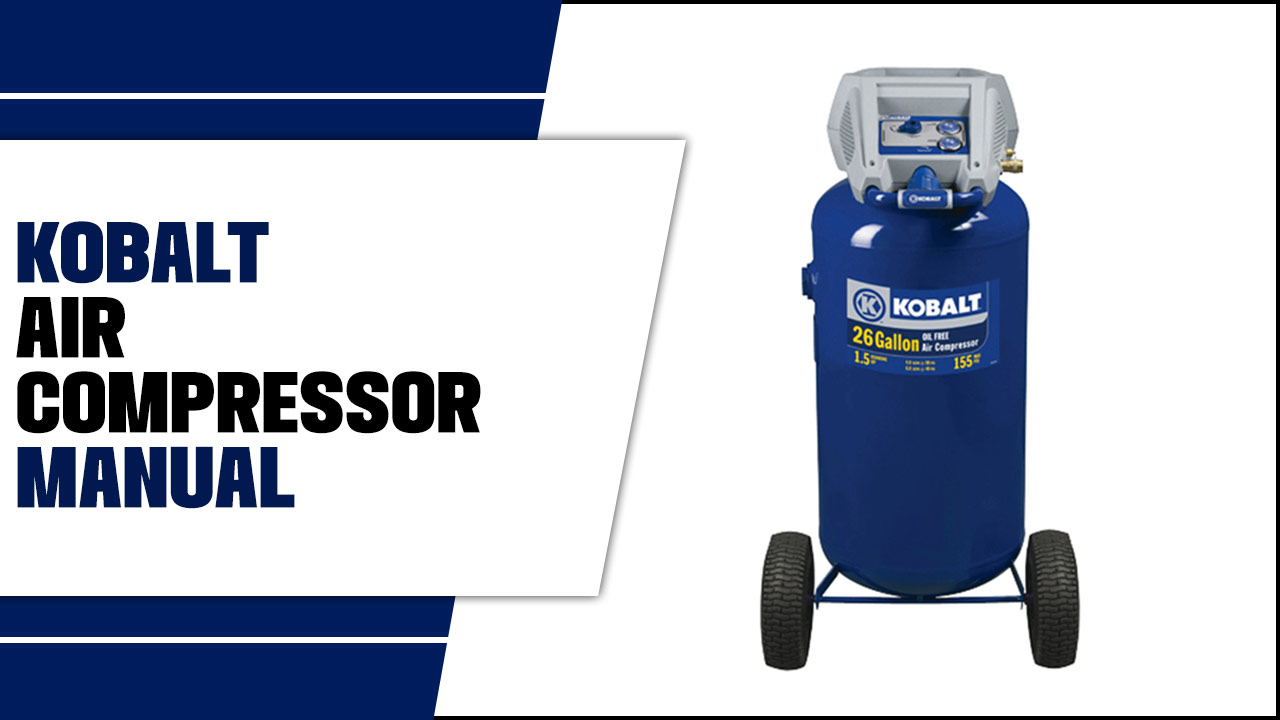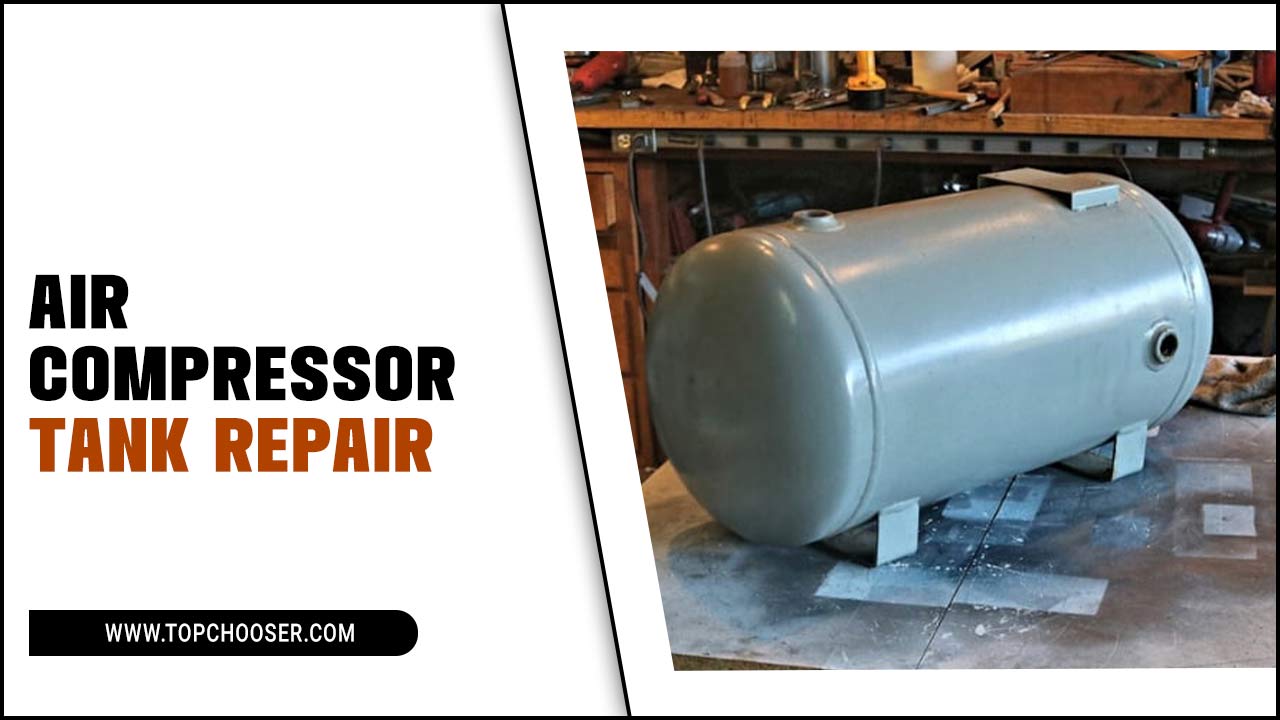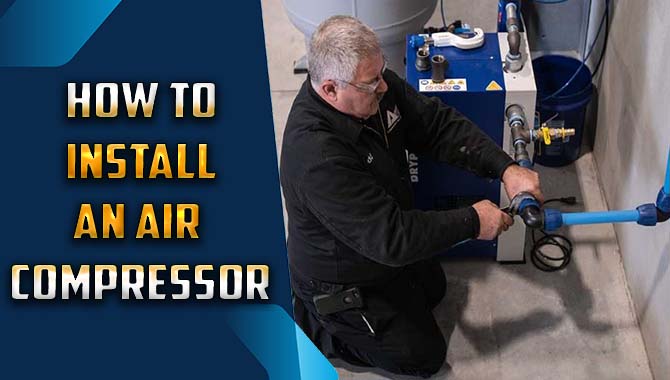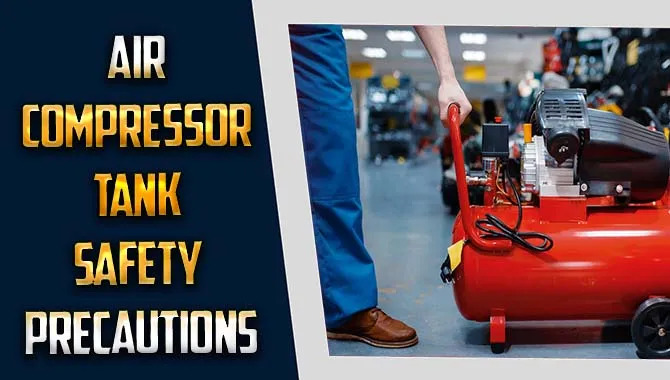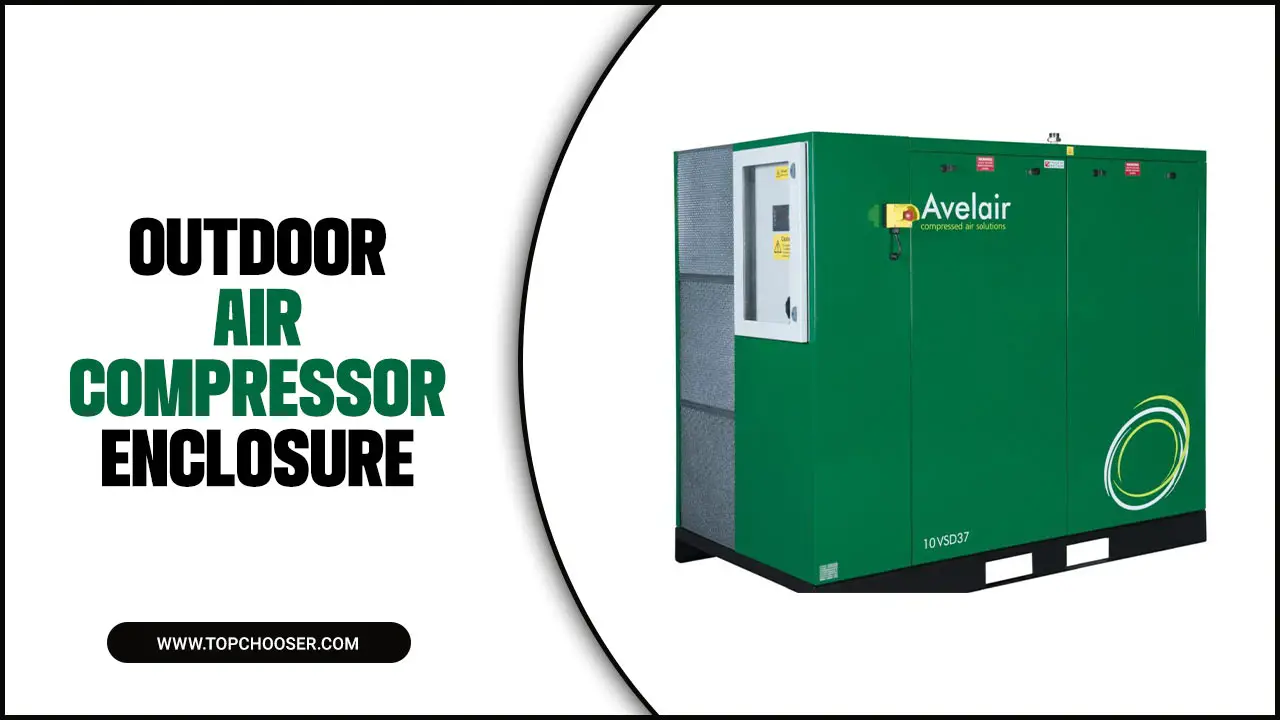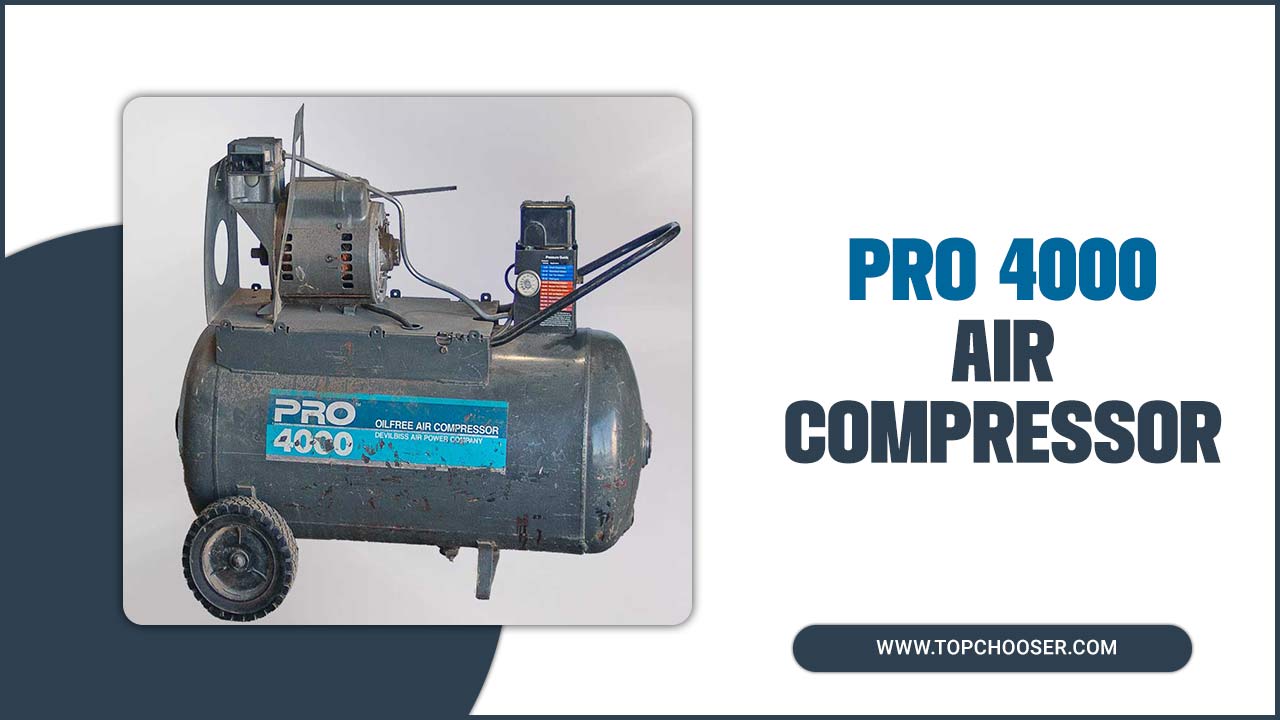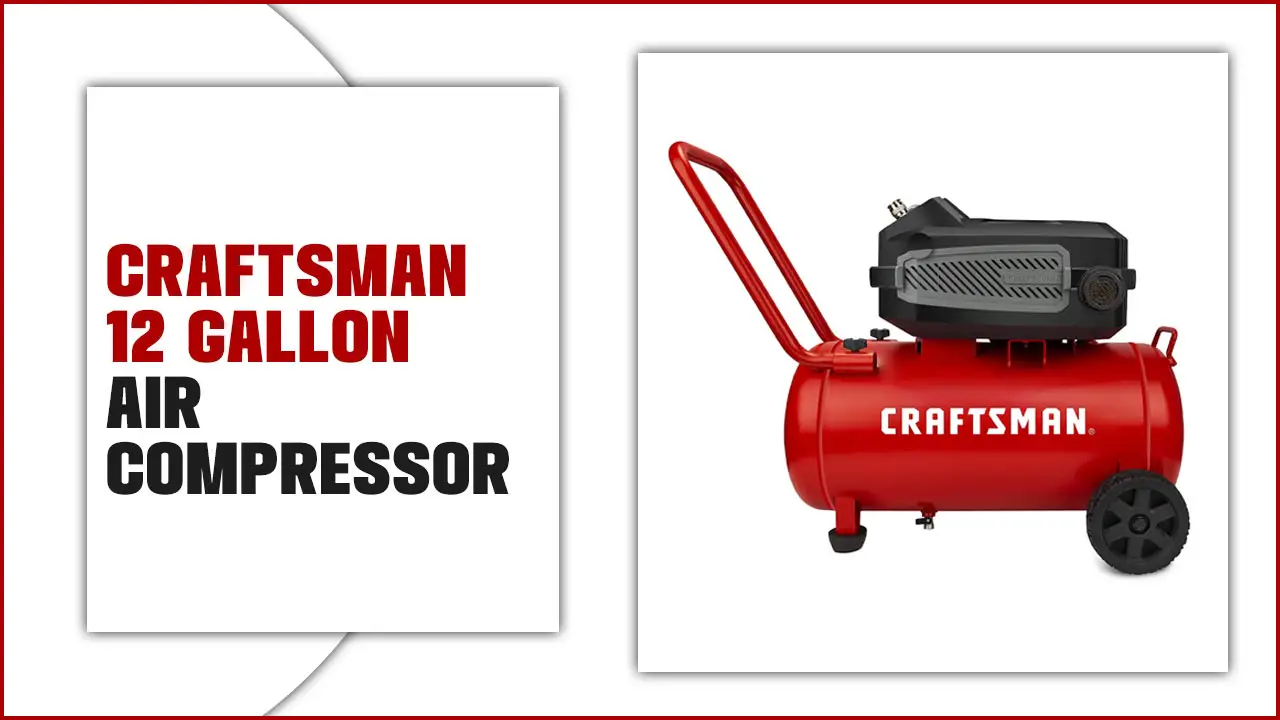Air compressors are an essential tool in any workshop or garage. They can be used to power a variety of pneumatic tools and machines, making them a valuable investment for any DIY enthusiast or professional mechanic.
However, proper storage is crucial to ensure that your air compressor performs optimally and lasts for years to come. Here we will discuss the do’s and don’ts of storing your air compressor correctly and discuss the main topic on how to properly store your air compressor.
We’ll also cover important maintenance techniques such as draining the tank and checking for damaged parts. Read on to learn more about the benefits of properly storing your air compressor and keeping it running smoothly when needed.
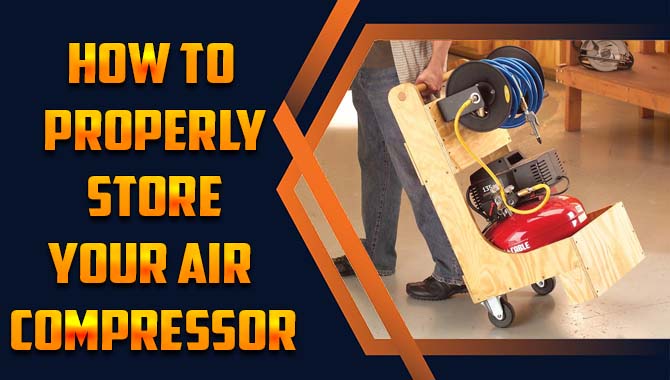
How To Properly Store Your Air Compressor – Safety Outside
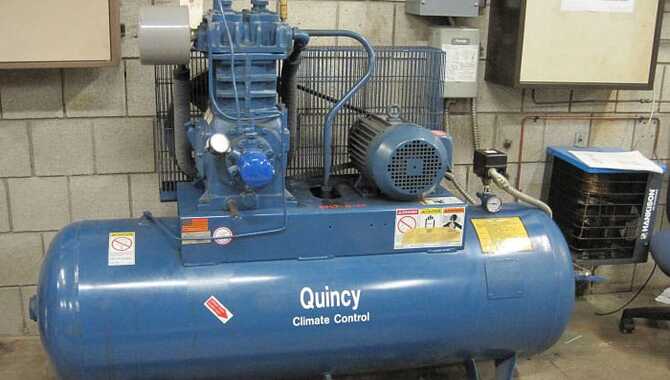
Properly storing your air compressor requires a few steps to prevent rust and damage. Start by thoroughly cleaning and draining the compressor to eliminate any moisture or debris that could cause problems. Next, choose a dry, cool location away from sunlight and temperature fluctuations to store your compressor securely.
Be sure to use a protective cover like those available for sale with compressors so that dust and debris don’t accumulate over time. And here is the process of how to properly store your air compressor.
1. Choosing The Right Location
To properly store your air compressor, you must choose its storage location. Ensure that the area where you store it is free from moisture buildup and humidity to prevent rust or damage within the compressor. It’s best to avoid keeping your air compressor in direct sunlight or exposing it to extreme temperature changes since condensation may cause valve damage or hose failure.
Also, store it in an area far from flammable materials and ignition sources and consider fasteners and accessories that might need adequate storage space. Choose a dry location that provides easy access for maintenance and repairs while ensuring clean and dry PSI levels are maintained during storage.
2. Indoor Vs Outdoor Storage
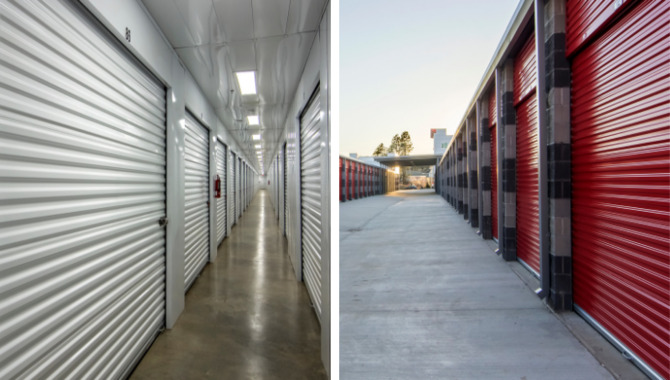
Properly storing your air compressor can prevent rust and damage caused by moisture buildup. When considering where to store your compressor, choose indoor or outdoor storage. Indoor storage offers protection from extreme temperatures and moisture while outdoor storage can be more convenient if you take proper precautions.
Such as covering the compressor with a waterproof tarp and securing it against wind and theft. Store your air compressor in a dry location away from flammable materials and ignition sources for optimal safety.
3. Temperature Considerations
Proper storage of your air compressor involves considering the temperature. The ideal storage temperature range for an air compressor is between 40-90°F. Do not store it in damp or humid locations to prevent damage to its internal components and avoid rust or corrosion caused by moisture.
Extreme temperatures can also harm the motor and other parts. Consider using a heater or insulation if you must store it in cold environments.
4. Proper Cleaning And Maintenance Techniques
Maintaining your air compressor is vital in ensuring it functions optimally. To do this effectively, refer to the manufacturer’s instructions before starting any maintenance procedure. Clean and replace the air filters regularly to avoid dust accumulation inside the compressor.
The drain valve helps remove all accumulated moisture inside the tank that can cause rust and condensation. While checking for damaged parts ensures that any issues are fixed promptly without causing further damage. It’s important to secure all fasteners and accessories in place, as loose parts can cause severe damage during operation.
5. Draining The Tank
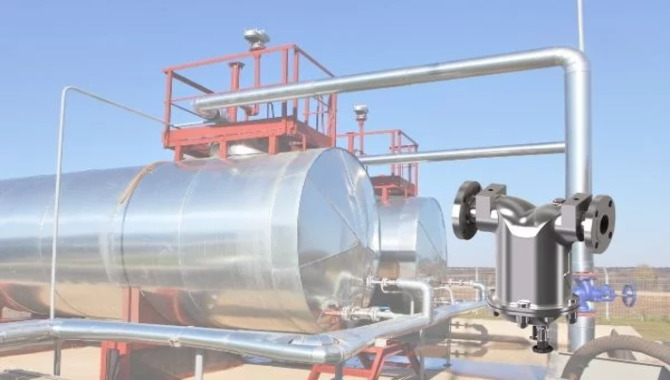
To extend the longevity of your air compressor and prevent rust and corrosion of its tank. It’s crucial to drain it after every use. Ensure turning off the power and releasing any remaining pressure before starting this task.
Regular filter cleaning or replacement maintenance can significantly prolong your air compressor’s life. Don’t forget to perform these tasks with your new air compressor too! Choose a suitable duration to maintain dry air in the tank for maximum efficiency.
6. Checking For Damaged Parts
Regularly inspecting your air compressor for damaged parts such as hoses, valves, and fittings will prevent safety hazards and ensure optimal performance. To avoid accidents or further damage, replace any damaged parts before using the compressor again.
Don’t forget to clean your air compressor properly to remove moisture and rust caused by condensation. With regular maintenance and cleaning techniques, you can extend the life of your new air compressor and keep it running at maximum PSI with dry air pressure.
7. Do’s Of Storing An Air Compressor
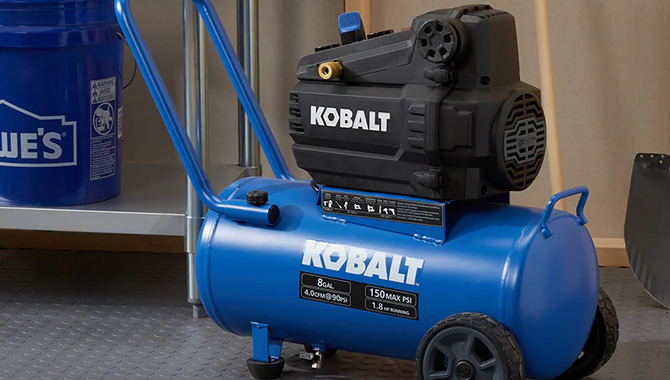
Properly storing your air compressor is crucial for its longevity. Avoid rust and corrosion by regularly draining the tank of any moisture buildup. Store it in a dry and ventilated area with a breathable cover to keep out dust and debris but away from humidity or extreme temperatures.
Lubricate with an appropriate oil before storage and remove all accessories or attachments. Following these guidelines protects your new air compressor and keeps it running smoothly for years.
8. Don’t Of Storing An Air Compressor
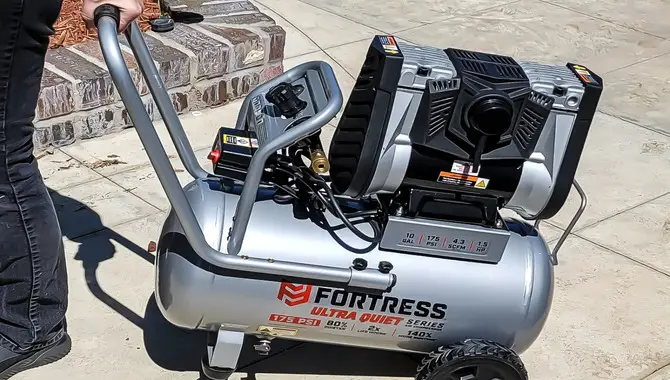
When looking after your compressed air equipment for long-term storage, it is essential to know the key ‘Don’ts.’ To begin with, never consider exposing your air compressor to harsh conditions that could promote rust or corrosion. Also, keep fuel out of its tank while in storage.
Furthermore, regularly draining your device of any built-up moisture is crucial to preventing damage to valves and hoses from condensation. And finally, use gentle cleaning methods that do not harm fasteners or accessories when seeking an appropriately clean result.
9. Benefits Of Properly Storing An Air Compressor
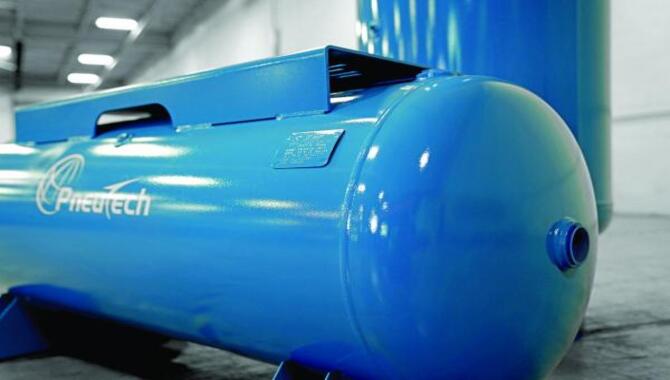
Storing your air compressor correctly is crucial to get the most out of it. Proper storage of an air compressor can bring several benefits that can save you time, money, and effort.
One critical benefit is preventing damage to the compressor pump, motor, and other parts. By storing the compressor in a dry, cool, and clean place, you can avoid rust, corrosion, and dust build-up that can cause mechanical breakdowns, leaks, or malfunctions.
In turn, this can extend the life of your compressor and reduce the frequency and cost of repairs and replacements. Proper storage can also improve the performance of your compressor by maintaining its optimal pressure, efficiency, and safety.
For instance, storing the compressor with the drain valve open can prevent moisture accumulation that can affect the air quality and pressure. Additionally, storing the compressor in a secure and well-ventilated space can reduce the risk of accidents, such as fires, explosions, or slip and fall injuries. Finally, proper storage can save you space and make your workshop or garage more organized and tidy.
Ensuring that you’re storing it in a clean and dry area with good ventilation and using an appropriate cover to protect it from dust and debris. While lubricating it with oil before storage ensures that rust, condensation and other problems are avoided.
Draining the tank regularly to prevent moisture buildup is also important. By doing this, along with proper cleaning techniques, you can ensure that your air compressor will last long without any issues arising.
Conclusion
Storing your air compressor properly can help extend its lifespan and prevent damage that can be costly to repair. Make sure you choose the right location for storage, whether it’s indoors or outdoors, and consider temperature changes that may affect the compressor.
Proper cleaning and maintenance techniques, such as draining the tank and checking for damaged parts, are also crucial in ensuring your compressor is in good condition when you need it next.
By following the tips outlined here on how to properly store your air compressor, you can ensure that your air compressor is stored safely and securely, free from damage or deterioration. Remember to follow the do’s and don’ts of storing an air compressor to avoid mishaps. Proper storage not only saves you money in repairs but can also save you time when you need to use it again.
Frequently Asked Questions
[rank_math_rich_snippet id=”s-c5b0c35f-d0aa-49c0-afef-00d5b8b69d3e”]

I am passionate about home engineering. I specialize in designing, installing, and maintaining heating, ventilation, and air conditioning systems. My goal is to help people stay comfortable in their homes all year long.

